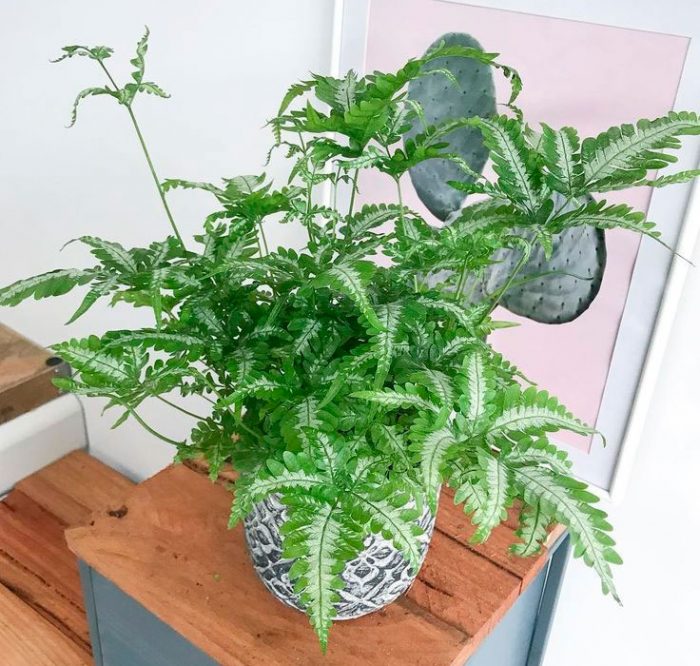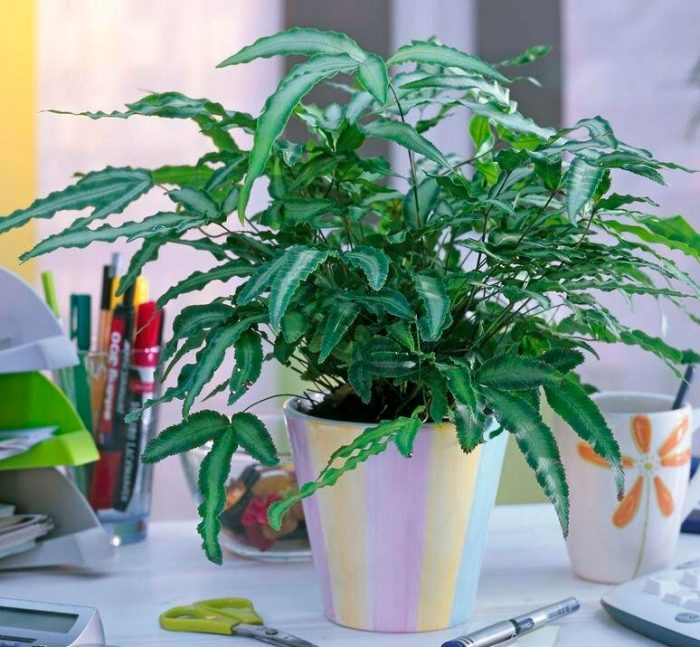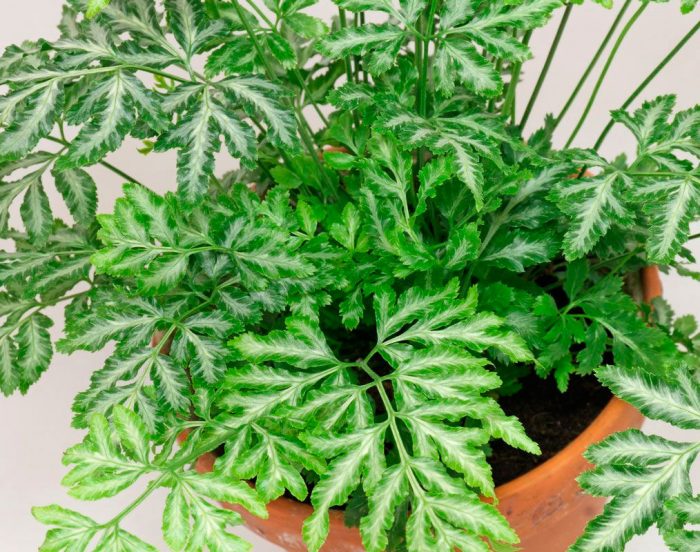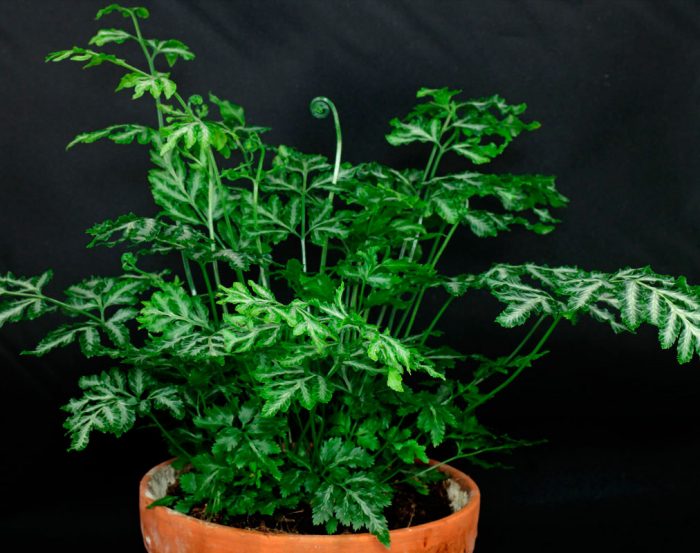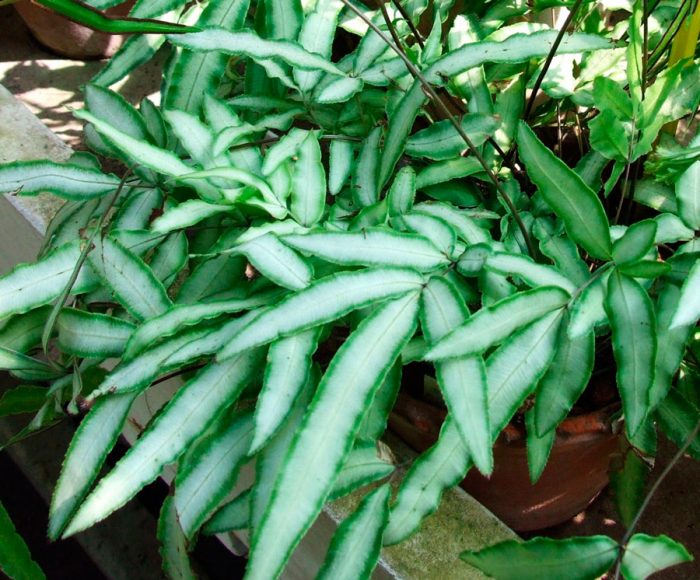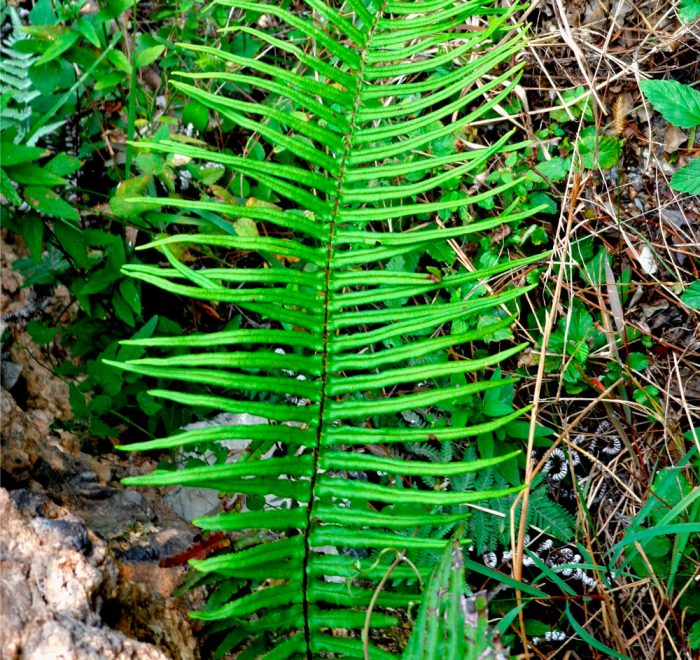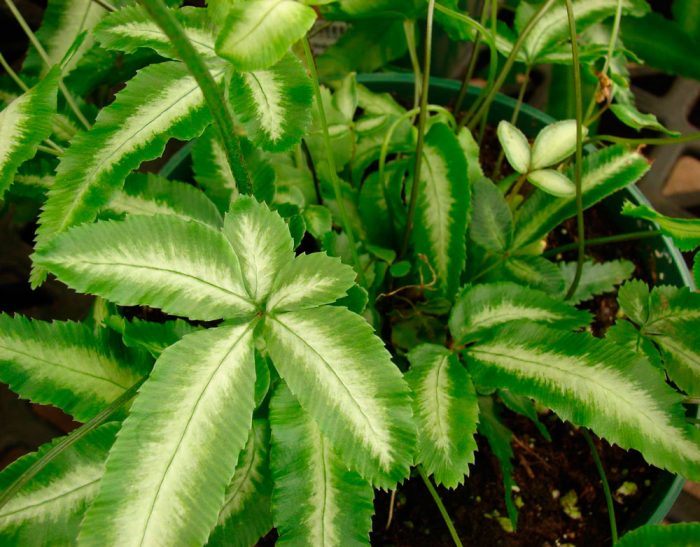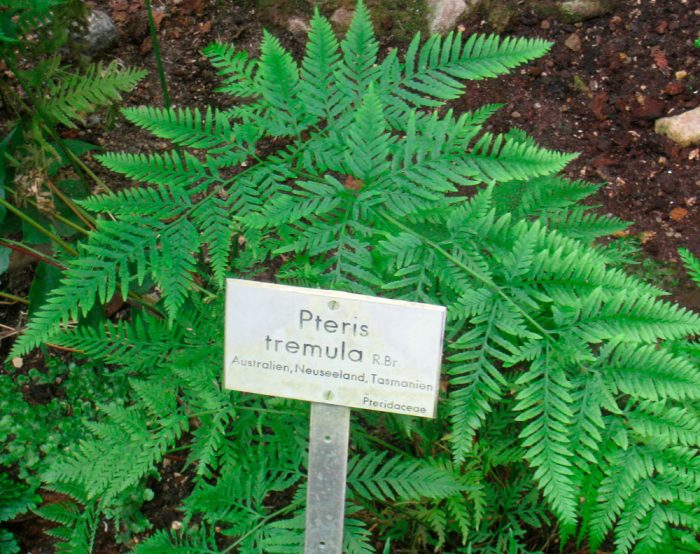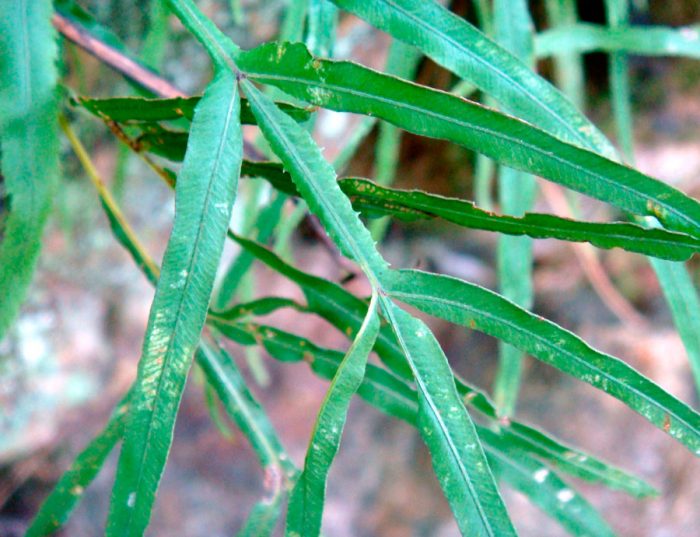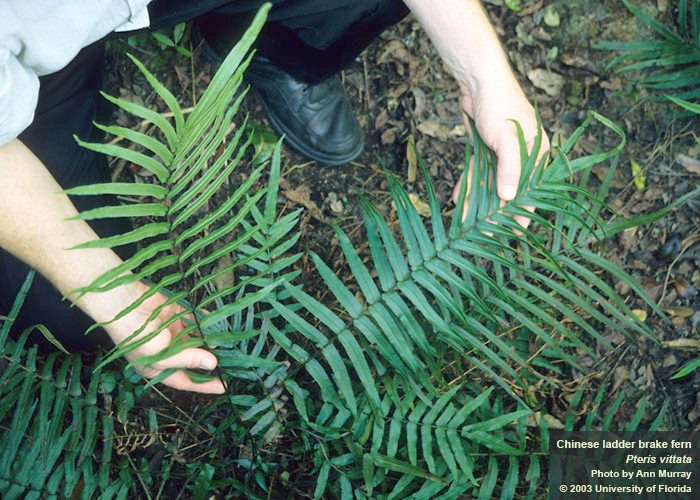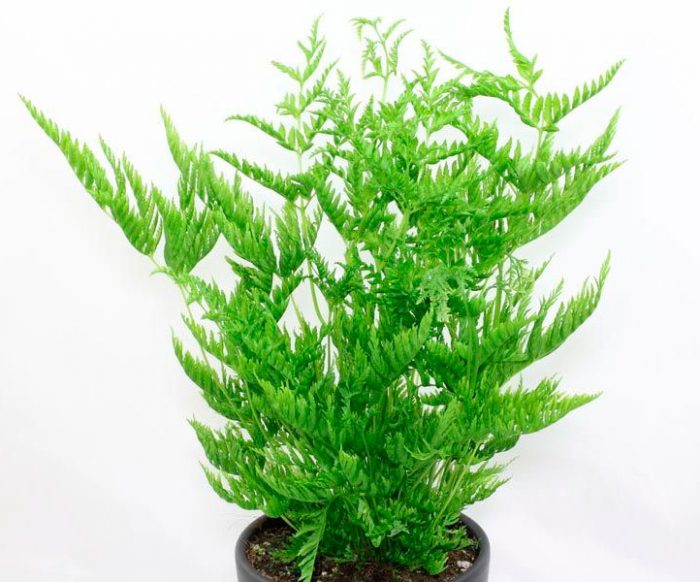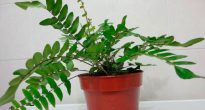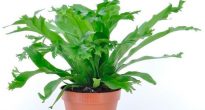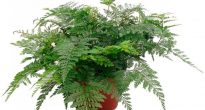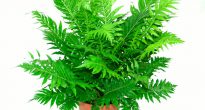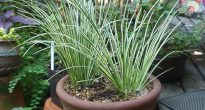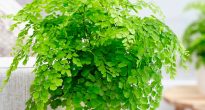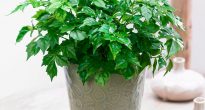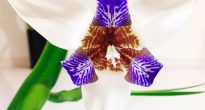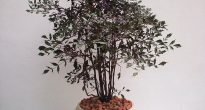A fern like pteris (Pteris) is directly related to the pteris family. There are about 250 species of such plants. In natural conditions, they are found in the subtropical and tropical regions of Tasmania, the USA, New Zealand, and Japan.
Such a plant has graceful leaves that have various sizes and contours. There are ferns with green foliage as well as variegated. All several types of pteris are used for growing at home, and most of them are quite undemanding to care for. However, it should be borne in mind that such a plant needs high humidity. Therefore, experienced flower growers recommend placing it nearby with other plants that love moisture.
If watered correctly, this spectacular fern is quite easy to grow indoors.
Caring for pteris at home
Illumination
It is recommended to choose a well-lit area, but the fern needs shading from direct sunlight. You can place it in a small partial shade. Pteris can also grow in the shade, but its leaves will not be as decorative.
Temperature regime
In the warm season, a temperature in the range of 20 to 22 degrees is quite suitable for him. In winter, it can withstand a drop in temperature up to 10-13 degrees. It should be borne in mind that variegated forms must be protected from a temperature drop of less than 16 degrees. The plant does not like drafts.
Humidity
Loves high humidity, like all ferns (except for pellets). In this regard, pteris should be regularly sprayed with lukewarm and soft water.
How to water
For irrigation, you need to use exclusively settled water. In the warm season, you need to water abundantly, and in the cold - in moderation, but you should not forget that the substrate should always be slightly moistened. Make sure that there is no stagnation of water in the soil, as this can lead to the formation of rot on the roots. Excess liquid should quickly leave the pot.
Top dressing
You need to feed the plant from May to August 2 times a month. To do this, use a liquid fertilizer for decorative deciduous indoor plants (take ½ part of the recommended dose).
Transfer
It is necessary to transplant in the spring and only when necessary, for example, when the roots no longer fit in the pot. You need to use slightly acidic or neutral ground.
Earth mixture
For planting, a soil mixture is suitable, consisting of leaf, turf, humus and peat soil, as well as sand, taken in equal proportions.
How to propagate
Spores or dividing the bush.
Pests and diseases
Can settle shield, less often - aphids and mealybug... It is not recommended to touch the delicate leaves of pteris, as they are quite easily damaged.
Pteris species
Pteris Cretan (Pteris cretica)
The most common type of such fern is called Pteris cretica (Pteris cretica). Its cirro-dissected leaves reach a length of half a meter and have from 2 to 6 pairs of segments. In nature, he prefers to grow in the forest, on rocks or river banks. Many garden forms are available.
Pteris longifolia (Pteris longifolia)
Its feathery, dark green leaves have 20 to 30 pairs of feathers. The leaf blade is slightly longer than the petiole. In the wild, it occurs in forests, as well as on slopes or rocky cliffs.
Pteris xiphoid (Pteris ensiformis)
It is outwardly very similar to the Cretan pteris, however, it has a darker color of foliage.
Pteris trembling (Pteris tremula)
It has very long leaves (up to 1 meter long), which are dissected and have straight petioles.
Pteris multifida (Pteris multifida)
The plant has many very narrow, dark green leaves. The length of the petiole is about 30 cm.At its end there are five narrow lanceolate leaves up to 45 cm long. Varieties for indoor cultivation:
- Variegata - there is a double white stripe at the top of each leaf;
- Cristata - each leaf in the upper part is wider and combed;
- Tenuifolia - there is a gray stripe in the center of the leaves.
Pteris tape (Pteris vittata)
The plant forms a tall and spreading growth. The fronds 70-100 cm long have a drooping shape. Cirrus-dissected long leaves are arranged alternately and are colored dark green.
Pteris dentate (Pteris dentata)
The delicate light green plant consists of feathery, folded leaves. The length of the leaf is 30-80 cm, and the width is 20-40 cm. The blades are perpendicular to the petiole. The fern grows rapidly and is highly decorative.

